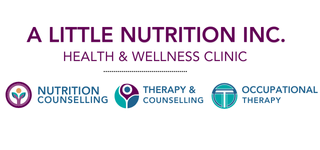The holiday season is often a time of joy, connection, and celebration. However, it can also bring uninvited and uncomfortable conversations about food and body image. Whether it’s comments about your plate, discussions about diets, or unsolicited remarks about appearance, these situations can feel draining and even harmful.
Setting boundaries around these topics is essential for protecting your mental and emotional health. By addressing these conversations confidently and compassionately, you can enjoy social gatherings on your terms. This guide offers practical strategies to help you navigate food and body talk this season.
Why Setting Boundaries Matters
Boundaries are a vital part of self-care. They help protect your emotional energy and communicate to others that certain topics—like food or body image—are not appropriate.
Healthy boundaries can:
- Prevent harmful comments from becoming normalized.
- Shield you from internalizing negative or unhelpful remarks.
- Empower you to prioritize your mental well-being.
While setting boundaries may feel uncomfortable at first, every effort makes a difference. Even recognizing when you need a boundary is a step in the right direction.
Addressing Food and Body Comments
Navigating comments about food or your body doesn’t mean you have to engage in confrontation. Here are strategies to handle these situations effectively:
Redirect the Conversation
One of the simplest ways to address food and body talk is by shifting the topic. For example:
- “I’d really like to focus on enjoying the holidays, not on food or body talk.”
- “There are so many other interesting things to discuss! Tell me about your new job.”
- “Let’s not talk about food or bodies. How have you been?”
Redirecting the conversation gently yet firmly helps steer interactions toward more meaningful topics.
Respond with Neutrality
Sometimes a neutral response can be the most effective way to shut down inappropriate comments—without escalating tension. For example:
- “I don’t talk about my body.”
- “That’s an interesting comment. I’m not sure how to respond to it.”
Neutral responses are calm, simple, and leave little room for further discussion.
Recognize Positive and Negative Comments Can Be Harmful
It’s important to remember that even compliments about appearance or body changes can be triggering. For instance:
- Weight loss may result from illness, stress, or disordered eating.
- Comments about appearance can reinforce harmful societal norms about bodies.
By treating all body-related comments as equally inappropriate—positive or negative—you can protect yourself and set clear boundaries with others.
Practical Tips for Social Situations
Preparing for social gatherings ahead of time can make boundary-setting easier and less stressful.
Prepare Ahead of Time
Before attending a gathering, reflect on scenarios where food or body talk might arise. Consider:
- Three responses or redirections you feel comfortable using.
- How you want to handle comments that may catch you off guard?
This preparation can help you feel more confident and in control.
Practice Self-Compassion
It’s natural to feel caught off guard or upset by comments. If that happens:
- Acknowledge your feelings: “That comment caught me off guard. I need a moment to process.”
- Remember: It’s not your responsibility to educate others in the moment if it feels overwhelming.
Giving yourself permission to step away or take a break can help you regain your balance.
Reframing Connection Without Appearance Talk
Social gatherings don’t need to revolve around food or bodies to be meaningful. Shift conversations toward topics that foster genuine connection. For example:
- “What’s something exciting that’s happened to you recently?”
- “What’s bringing you joy this holiday season?”
By focusing on what truly matters—connection, shared experiences, and joy—you can build healthier and more fulfilling interactions.
When Reflecting Helps
Sometimes, reflecting on an uncomfortable situation afterward can help you process what happened and prepare for future interactions. Consider asking yourself:
- What about the situation made me uncomfortable?
- How could I respond differently next time?
- What boundaries can I set to protect myself?
Writing down your thoughts or discussing them with a trusted friend, family member, or therapist can offer clarity and emotional relief.
Final Encouragement
Navigating food and body talk during social gatherings isn’t always easy, but each step you take helps you protect your well-being. Whether you redirect a conversation, respond with neutrality, or reflect on an interaction for growth, you are building skills to advocate for yourself.
You deserve to enjoy holiday gatherings without judgment, discomfort, or harmful conversations. By setting boundaries, you’re not only protecting yourself but also fostering healthier social dynamics for everyone around you.
Be kind to yourself and remember: Progress happens one step at a time. You are worthy of peace, joy, and connection this holiday season.
Are you ready to take the next step?
Navigating food and body talk during social gatherings can be challenging, but you don’t have to do it alone. Working with a dietitian or therapist can provide you with the tools to set boundaries, respond with confidence, and protect your emotional well-being.
Nutrition Therapy offers a safe space to process difficult interactions, build self-compassion, and strengthen your ability to advocate for yourself. If you’re ready to prioritize your mental health and find peace this holiday season, reaching out to a therapist is the next empowering step.
Take charge of your well-being. Connect with a dietitian or therapist today and learn how to navigate food and body talk with confidence and care.
GET IN TOUCH






